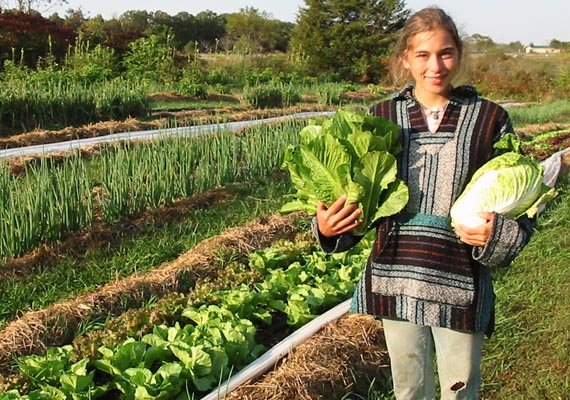New Delhi: 'Grow your own food' seems to be the new mantra for a section of the health conscious urban crowd who as budding gardeners are increasingly opting for organic farming.
From growing a variety of fruits and vegetables like brinjals, tomatoes, lemons, potatoes, chilies and others; the urban gardeners are also looking at ways to popularise the practice of organic farming as a way of life.
"My mother had an ornamental garden. After the birth of my child, I decided to add vegetables to it. I want that at least my child should be fed on fresh, home-grown vegetables. The burgeoning rates of food combined with their poisonous components have forced me to think otherwise," says 40-year- old Ashish Agarwal, a freelancer.
Redefining the waste produced at home, experts feel that people should usher in practices that provide optimum use of the resources in hand rather than burdening the environment that is already under a lot of pressure.
"You can use kitchen waste and composorb, an organic composting aid, to grow plants even in your terrace. The process of cultivation is very easy and the cost is also very low," environmentalist and bio-manure expert Narender Kumar said.
Kumar, who works as a waste expert for Tihar inmates, is of the view that waste management should be the next step to the widely popular 'Swachch Bharat Abhiyan'.
"Delhi produces 8,000-10,000 metric tons of waste annually and spends huge amount on its disposal. Why can't we design a system that utilises the waste and thus help in saving money? We need to ask ourselves what are we doing next to 'Swachch Abhiyan'? Waste management is the next step to this campaign," he says.
"At Tihar, the inmates produce 4-5 tons of organic waste. They sold the compost they made out of kitchen waste as manure to the farmers last year," says the environmentalist. Moving beyond the minimum required space of 50-80 cm for organic terrace farming, the gardening enthusiasts are experimenting with variety and venue.
"Though I started with planting fruit trees on a small piece of land, now I have utilised more than 1,500 square feet of space in my backyard for organic gardening. The hobby has become a passion now. I have almost stopped buying vegetables from the market apart from potatoes, chilies and onions in the off season," says Rakhee Chowdhary, a health professional.
"I am currently growing spinach, broad bean, egg plant, strawberry, mint, coriander, papaya, capsicum, turmeric, Fenugreek, basil and lemon grass. I am also growing flowers like marigold, calendula, dahlia, freesia, Gazania etc," shares 33-year-old Pankaj Vaksh, a software engineer.
The budding gardeners also shared the common mistakes that people make while doing organic cultivation. "Do not use a lot of water while making compost which remains to be the most common mistake people make while doing organic cultivation. The water content reduces the gestation period of the compost pit. Use organic pesticide to kill the pests. Do not hesitate to experiment in your garden and always learn from your mistakes," says Vaksh.
"Waterproof the roof or the place you are planning to cultivate on so that the place gets prone to the weight of soil and leakages. One should keep in mind the temperature variations while growing the particular varieties. There are many cultivation groups and experts who can be consulted for the right methods," says Rakhee, one of the members of Organic Terrace Gardening Group on Facebook that shares interesting tidbits on organic farming and assist people who want to undertake the practice.
Dr Narendra, who is currently working on a project with Salwan Public School to plant trees in various spots in the capital, sums up the need for an alternate food cultivation model as a practice of pure economics.
"It is pure economics. Today there is not enough supply to cater to the increasing demand. By growing your own food, we are not just dividing this gap, we are also doing our bit for the environment as well as for our own selves," he says.

